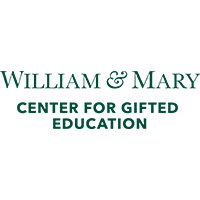The tide never rolls in quite the same way twice. Each swelling of the waves takes with it a little bit of the earth and leaves a little bit behind on the shore. In the same way, none of us arrives in quite the same world—and none of us leaves it unchanged. In Autobiographies and Memoirs, we will explore the unique ways in which each of us experiences the world. How do we each transform it into a place that is a little bit different—and completely our own?
The Student Literature Workbook eBook includes fillable student activity pdfs that support lessons and each unit’s short stories and poems. The workbook engages students in exploring carefully selected, challenging works of literature from various times, cultures, and genres. They include:
- Letter to Student
- Model Overview
- Glossary of Literary Terms
- Vocabulary List
- Short Stories
- Poems
- Activity Pages
A 1-Year License will provide each student with access to the digital materials through our online platform, Flourish. The printed Autobiographies and Memoirs Student Literature Workbook is sold separately.
- Acknowledgments
- Letter to Student
- Glossary of Literary Terms
- Models
- Activity Pages, Short Stories, Poems, and Readings
- Lesson 1: Introduction and Preassessment
- Lesson 2: The Concept of Change
- Lesson 3: Introduction to the Study of Grammar
- Lesson 4: Change
- Lesson 5: Reflections Project
- Lesson 6: The Hamburger Model for Persuasive Writing
- Lesson 7: Autobiographical Writing
- Lesson 8: Discussion of Autobiographical Literature
- Lesson 9: Reasons to Write
- Lesson 10: Family, Heritage, and Writing
- Lesson 11: Introduction to Reasoning
- Lesson 12: Preparation for Oral Presentations
- Lesson 13: Presentations of Reflections
- Lesson 14: Where You Are From
- Lesson 15: Introduction To Research
- Lesson 16: Author Focus: Francisco X. Alarcón
- Lesson 17: Preparing for a Writer Interview
- Lesson 18: Author Focus: Pat Mora
- Lesson 19: Self-Portraits in Music and Art
- Lesson 20: Authors and Their Works
- Lesson 21: “Charles”
- Lesson 22: Presentation of Research
- Lesson 23: Closing Discussion on the Concept of Change
- Lesson 24: Postassessment of Literary Interpretation and Persuasive Writing
- Inspecting Our Own Ideas: Student Grammar Study

COLLEGE OF WILLIAM & MARY
The Center for Gifted Education (CFGE) at William & Mary University (College of William & Mary), is a research and development center providing services to educators, policy makers, graduate students, researchers, and parents in support of the needs of gifted and talented individuals.
Located in Williamsburg, Virginia, the CFGE has established an international reputation for excellence in research, curriculum development, and service. Several major grants, including funding from the Jacob K. Javits Gifted and Talented Students Education Act, have provided significant support for the work of the Center. In 2012, the Jack Kent Cooke Foundation awarded CFGE the funds needed for a summer residential camp for low income, high-ability children, for four consecutive years. In 2015, William & Mary alumni, Mike and Nancy Petters, through the Petters Family Foundation, provided additional financial support to the program. In 2016, the Petters Family Foundation has committed to fully fund the program for the next four years. Camp Launch is only the beginning of the Center for Gifted Education’s goal to bring educational equality to all gifted students.
 RETURN TO SEARCH RESULTS
RETURN TO SEARCH RESULTS
 RETURN TO SEARCH RESULTS
RETURN TO SEARCH RESULTS